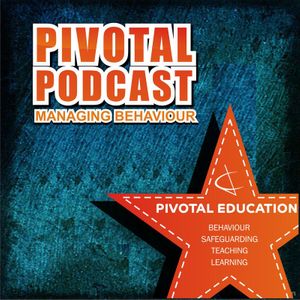The Great Homework Debate with Mark Creasy – PP140
Pivotal Podcast - A podcast by Pivotal Education

Categories:
This week we tackle one of the most controversial subjects amongst teachers, parents and learners – homework. We are joined by Mark Creasy – Teacher, ITL Associate, author of ‘Unhomework’ and Sky News guest! Mark has completely changed the way he, his classes and a lot of schools think about homework. Mark was a secondary headteacher but retrained as a primary teacher in order to go back into the classroom at upper Key Stage 2 level. Do children in the UK have too much low-quality homework? Homework, Mark believes, is often done to appease a policy the school has created – which itself is done to appease parents. Too often it’s one-size fits all and engineered to create less of a burden for teachers – the problem is, it often does create a burden for families. Time spent practising learning does improve achievement but the problem is that most homework isn’t practising learning – it’s often very simple, mundane, clerical, completing of tasks that don’t extend children, don’t really look at the depth of their understanding or even prepare them for what they will meet next. What are the worst kinds of homework? Mark and Paul come up with some of their ‘favourite’ worst homework tasks: * Word searches * Colouring-in exercises * Finishing off * The dreaded ‘science safety poster’ Listen in for the explanations! What is great homework and what does the research say? There is quite a bit of research in this area, according to Mark, but it’s often unreliable because parents and children ‘know what to say’ when they are filling in questionnaires about homework. They tend to respond in ways they think will look best, rather than with the true situation. One body of great research, however, is by John Hattie. He says that the overall effect size of homework 0.29. For the most purposeful impact, it needs to have an effect size of 0.40. When the figures are split out, Primary homework comes out at 0.15 and Secondary at 0.64. The Homework we do at Primary School, by and large, has no impact. The Secondary figure, however, contains elements like preparation for coursework and extended essays. Mark points out that Finland doesn’t have homework and it is at or near the top of various league tables of education. So what is ‘Unhomework’ and how does it help? Unhomework is how Mark has set homework for the past 12 or 13 years. You empower the children. Unhomework has to work in parallel with how you work in class. Children set their own learning and targets for homework and then it is self and/or peer assessed. It’s all about them beong able to develop themselves as learners. You’ve got 30 individual pieces of homework set by children for children with teacher support. How do you ensure children are setting it at an appropriate level to stretch themselves? Mark believes that teachers need to give the first half term over to training the children in how to understand unhomework. In this half term, the teacher would start by setting lots of options – gold, silver or bronze – for the children to choose from. There will always be those children who say ‘what’s beyond gold?’ or ‘what’s beneath bronze’ and this leads to constructive conversations and a devloping understanding of their levels of confidence. Another approach is the ‘title only’ homework. For example, ‘Safety’. Each child can respond to the concept of Science Lab Safety in any what they want to. Mark recalls having a different piece of homework from every child when he has used this approach – songs, videos, a safety lesson etc. Doesn’t this cause huge marking problems?